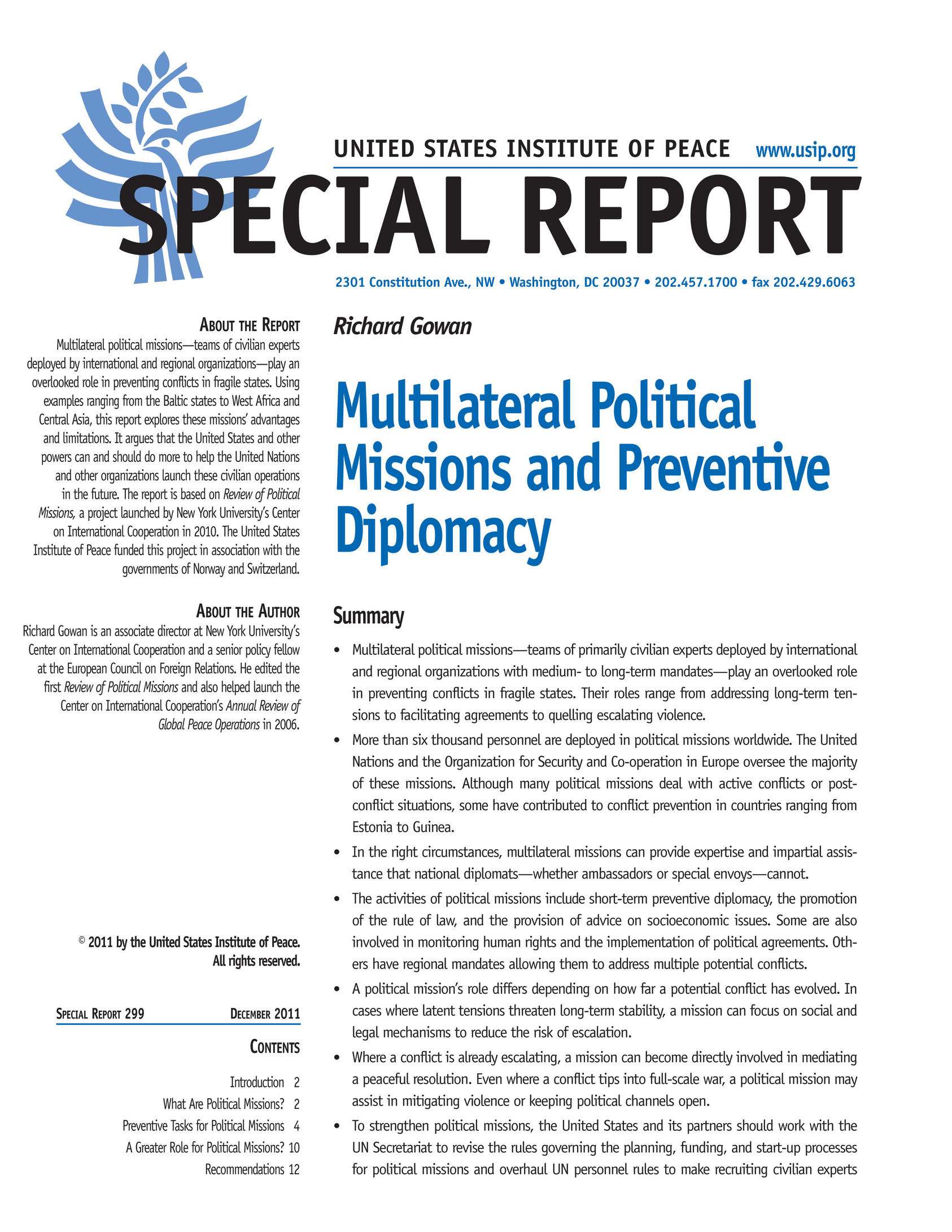Multilateral Political Missions and Preventive Diplomacy
Multilateral teams can often bring a level of expertise and impartiality to preventing conflicts that other missions cannot. With a little more support, they can be an even better tool for conflict prevention. The report is based on Review of Political Missions, a project launched by New York University ’s Center on International Cooperation in 2010. The United States Institute of Peace funded this project in association with the governments of Norway and Switzerland.

Summary
- More than six thousand personnel are deployed in political missions worldwide. The United Nations and the Organization for Security and Co-operation in Europe oversee the majority of these missions. Although many political missions deal with active conflicts or postconflict situations, some have contributed to conflict prevention in countries ranging from Estonia to Guinea.
- In the right circumstances, multilateral missions can provide expertise and impartial assistance that national diplomats—whether ambassadors or special envoys—cannot.
- The activities of political missions include short-term preventive diplomacy, the promotion of the rule of law, and the provision of advice on socioeconomic issues. Some are also involved in monitoring human rights and the implementation of political agreements. Others have regional mandates allowing them to address multiple potential conflicts.
- A political mission’s role differs depending on how far a potential conflict has evolved. In cases where latent tensions threaten long-term stability, a mission can focus on social and legal mechanisms to reduce the risk of escalation.
- Where a conflict is already escalating, a mission can become directly involved in mediating a peaceful resolution. Even where a conflict tips into full-scale war, a political mission may assist in mitigating violence or keeping political channels open.
- To strengthen political missions, the United States and its partners should work with the UN Secretariat to revise the rules governing the planning, funding, and start-up processes for political missions and overhaul U.N. personnel rules to make recruiting civilian experts easier. They should also encourage regional organizations to invest more in this type of conflict management tool.
About the Report
Multilateral political missions—teams of civilian experts deployed by international and regional organizations—play an overlooked role in preventing conflicts in fragile states. Using examples ranging from the Baltic states to West Africa and Central Asia, this report explores these missions’ advantages and limitations. It argues that the United States and other powers can and should do more to help the United Nations and other organizations launch these civilian operations in the future.
The report is based on Review of Political Missions, a project launched by New York University ’s Center on International Cooperation in 2010. The United States Institute of Peace funded this project in association with the governments of Norway and Switzerland.
About the Author
Richard Gowan is an associate director at New York University ’s Center on International Cooperation and a senior policy fellow at the European Council on Foreign Relations. He edited the first Review of Political Missions and also helped launch the Center on International Cooperation’s Annual Review of Global Peace Operations in 2006.



